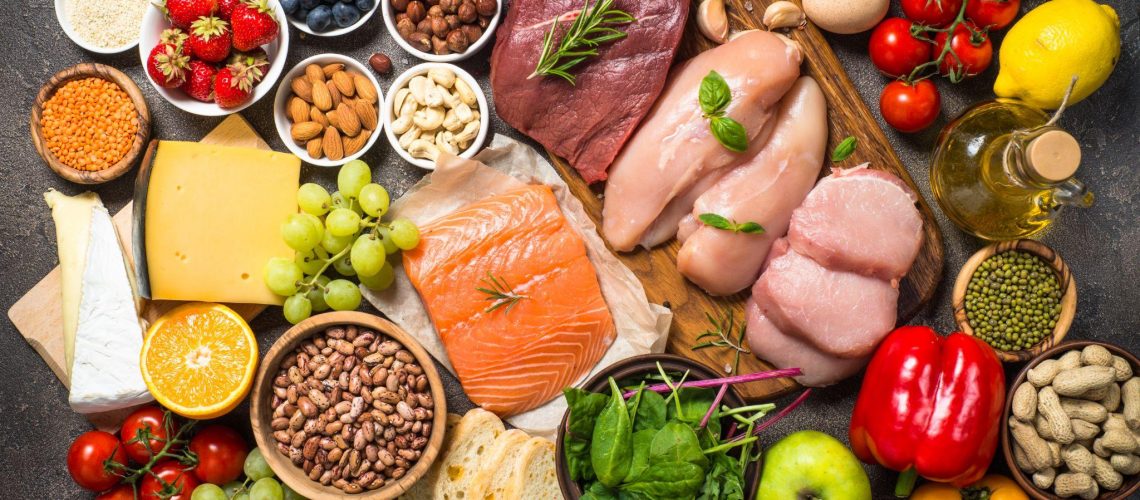Nutrition and addiction recovery go hand in hand. As a disease that affects the whole body, taking a holistic approach to recovery requires placing emphasis on your nutrition and diet.
Whether you’re interested in treatment, have already undergone treatment, or are worried about relapsing, understanding the effect of addiction on your nutrition and how to fuel your body with the right food can make a significant difference in your long-term recovery.
The Impact of Substance Abuse on Nutrition
Substance use disorders affect every aspect of your life, from your relationships to your physical health, and nutrition is often one of the first things to suffer.
During addiction, you may find you don’t get hungry as often, or you might develop a pattern of fasting or skipping meals when you’re using and then binge eating when you come down. These poor eating habits can cause a variety of complications, including:
- Bipolar disorder symptoms
- Depression symptoms
- Weight gain or loss
- Digestion and GI issues
- Poor nutrient absorption leads to malnutrition and deficiencies
Why Nutrition Matters in Recovery
Balanced nutrition and a healthy diet play a crucial role in both short and long-term addiction recovery. Some of the roles your diet plays in recovery and sobriety include:
- Improved physical health: Substance abuse can take a toll on your body, leading to nutritional deficiencies, a weakened immune system, and overall poor health. A balanced diet helps repair this damage in recovering addicts while supporting the body’s natural healing processes.
- Better mental health: Nutrient-rich foods can benefit your mental health and mood by supporting brain function and emotional well-being. This reduces your risk of developing depression and anxiety, which can be triggers for relapse.
- Craving management: High-protein foods can reduce cravings for drugs and alcohol by stabilizing blood sugar levels and promoting feelings of fullness.
- Stress reduction: Stress can play a powerful role in relapsing. Eating nutritious foods rich in vitamins and minerals, as well as omega-3 fatty acids and antioxidants, can help your body cope with stress better.
- Boosting energy and focus: A good diet improves your energy levels and cognitive function, helping you stay focused on your goals and daily tasks, which is important for maintaining sobriety. It can also help you stay focused on your recovery program and therapy over longer periods of time.
Essential Nutrients for Recovery
Creating a healthy diet early on during recovery can help make the process easier and even more rewarding. As part of this diet, you should choose foods that contain the following essential nutrients to ensure you’re getting everything you need to stay healthy.
- Complex carbohydrates: In moderation, complex carbs are a great source of nutrients, fiber, and energy. Examples include sweet potato, brown rice, and a variety of beans.
- Proteins: Protein contains amino acids that are crucial for repairing tissues and maintaining a healthy immune system. Examples of protein-rich foods include beans, tofu and tempeh, quinoa, Greek yogurt, milk, and nuts and seeds.
- Vitamins and minerals: Eating fruits and vegetables high in essential vitamins and minerals will improve your body’s cell function and energy.
- Healthy fats: Omega-3 fatty acids and other healthy fats found in flax and chia seeds fish, walnuts, and eggs are important to improve brain health and regulate hormone production.
How to Build a Balanced Diet
Building a balanced diet doesn’t have to be a challenge. Instead, slowly start incorporating healthy foods and meals into your daily life while learning more about the foods that are best for you. That way, you avoid the stress involved in changing your entire diet at once while still improving your nutrition over time.
Prepare for Lifelong Recovery with Del Arroyo Recovery Center
As part of our treatment programs at Del Arroyo Recovery Center, we offer detailed nutritional guidance to help you have the best chance at lifelong sobriety. Our experienced staff members understand that eating healthily can make a profound change in your outlook. That’s why we offer healthy, balanced meals to all participants in our onsite programs.
Alongside therapy, counseling, holistic treatment, and relapse prevention, a healthy diet can help you transform your life.
Take the first step toward long-term sobriety by prioritizing your nutrition today—your body and mind will thank you.


